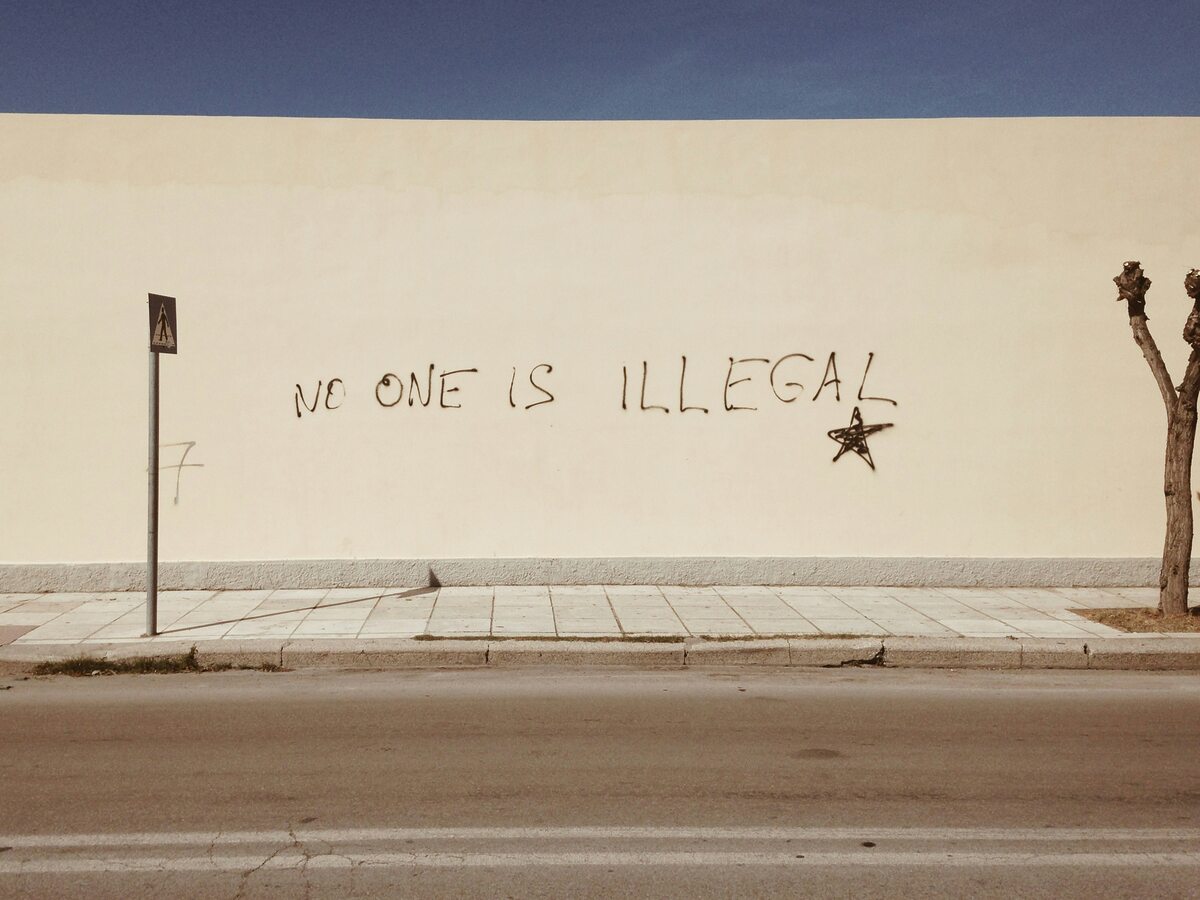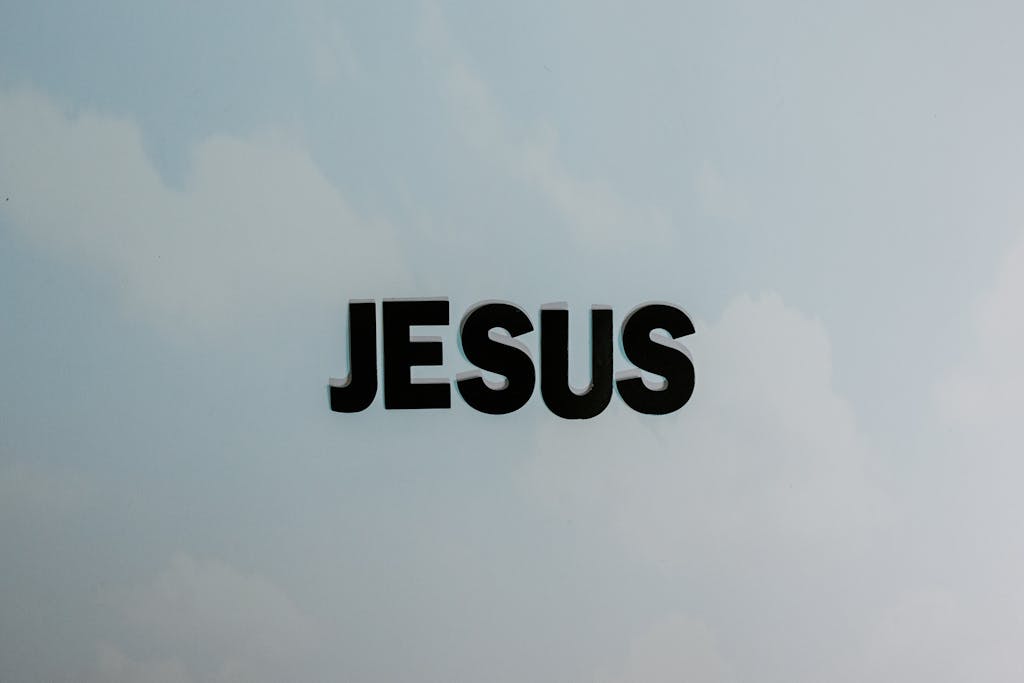“Christianity and Immigration: A Faith That Walks With the Displaced”
From Abram to L.A.—Faith Has Always Moved Toward the Margins
1. Immigration Is Where the Christianity (and Scripture) Begins
The entire Judeo-Christian story begins with immigration. In Genesis 12:1 we hear God command a man named Abram to, “Go from your country and your kindred and your father’s house to the land that I will show you.”
So Abram—later Abraham—left his homeland (and the trappings of safety and comfort he knew there) to step into covenant with God (a covenant that would lead to the creation of the Hebrew people and the nation of Israel). In so doing, Abraham literally became an immigrant in order to follow God’s promise–a common theme for those throughout Scripture.
For in the very next story, we encounter a man named Moses who fled Egypt after killing an Egyptian taskmaster. He, too, became an immigrant in order to escape persecution, crossing into the foreign land of Midian. There, he found refuge, as he was welcomed, able to marry into a local family, and eventually encounter God in a burning bush. If Midian had turned Moses away (or kicked him out), there would have been no Exodus, no liberation, no Israelite nation. The story would’ve died in the desert.
And it’s not just these individuals. The entire people of Israel were formed as immigrants in Egypt—oppressed, displaced, and later liberated.
Clearly, immigration isn’t a footnote in our tradition. It is the foundation. The God of Scripture forms community not in temples or palaces, but in movement, in wilderness, and in lands not their own.
2. The Bible Is Crystal Clear on Immigrants
So it should come as no surprise that the call to care for the immigrant looms large throughout Scripture. In the Torah alone, there are more than 30 separate commands regarding immigrants. And they are not suggestions:
- Exodus 22:21 – “You shall not wrong or oppress an immigrant, for you were immigrants in the land of Egypt.”
- Leviticus 19:33–34 – “When an immigrant resides with you in your land, you shall not oppress them. The immigrant shall be to you as the citizen among you; you shall love the immigrant as yourself, for you were immigrants in the land of Egypt.”
- Leviticus 24:22 – “You shall have one law for the immigrant and the native-born.”
- Deuteronomy 10:18–19 – “God defends the cause of the fatherless and the widow, and loves the immigrant, giving them food and clothing. So you also must love the immigrant, for you were immigrants in Egypt.”
This isn’t framed as charity. It’s justice—equality under the law, compassion rooted in shared history, and a deep moral imperative grounded in God’s own values.
And the stories of Scripture reinforce this again and again.
The book of Ruth isn’t just a sentimental tale about loyalty. It’s a radical immigration story. She was a Moabite, a foreigner from a people long in tension with Israel. Yet when she entered Israelite territory, she was not only welcomed but woven into the very lineage of King David and, ultimately, Jesus. She moved from immigrant widow to matriarch of faith.
Esther, too, was a foreigner in Persia. She hid her identity to survive in a hostile empire. But when the moment called, she stepped forward and risked her life to advocate for her people. Her immigrant status is central to the narrative. She didn’t save her people despite being an immigrant. She saved them because she knew what it is to live at the margins, under threat.
Then… there’s Jesus. We sanitize the nativity story with Christmas carols and candles. But Jesus began his life as a political refugee.
“An angel of the Lord appeared to Joseph in a dream and said, ‘Get up, take the child and his mother, and flee to Egypt… for Herod is about to search for the child, to destroy him.’” (Matthew 2:13)
Jesus survived because Mary and Joseph crossed a border, fled to a foreign land, and found refuge. He was a child immigrant escaping violence. That is the beginning of the Gospel.
So let’s ask the hard question: If Jesus’ family had been turned away at the border, would he have lived?
It’s not overstating it to say the entire Christian narrative hinges on a child immigrant being received. This is not a “both sides” issue. This is Biblical faith 101.
3. A Rare Place of Agreement: When Progressives and Conservative Theologians Align
In today’s fractured Church landscape, it’s rare to find a topic where progressive and conservative Christians speak with one voice. But immigration is often one of those few.
Why? Because Scripture is so unequivocally clear.
One of the most respected voices in conservative evangelical circles, the late Tim Keller, addressed this directly:
“The sojourner, the immigrant, appears regularly in lists of those to whom justice is due, because the Old Testament so repeatedly highlights the immigrant as one of those to whom justice is due. … Any neglect shown to the needs of the poor, the orphan, or the immigrant is not called merely a lack of mercy, but a violation of justice.” (Tim Keller, Generous Justice: How God’s Grace Makes Us Just)
This is not just rhetoric. Keller argued that the Hebrew term “ger” (often translated “foreigner” or “stranger”) should be more accurately interpreted as “immigrant.” In his view, a truly biblical faith must extend compassion to immigrants, not as charity but as a requirement of faithfulness.
4. When Scripture Is Ignored to Justify Control
Despite how clear Scripture is about welcoming the immigrant and protecting the vulnerable, many Christians have either openly supported harsh immigration crackdowns or chosen silence in the face of cruelty.
But when followers of Jesus applaud or ignore the suffering inflicted by policies like the ICE raids in Los Angeles, it exposes a deeper allegiance not to the Gospel, but to nationalism and control.
This is what happens when political loyalty is placed before fidelity to the Gospel. Compassion is suddenly viewed as weakness. Justice gets politicized. And core teachings of Scripture are sidelined or ignored to justify power and control.
Inclusive Christianity refuses to play along. It insists that our beliefs must lead to practices that mirror the radical hospitality of God—not the prioritiesRA of empire. And it demands that we ask ourselves honestly: Who are we following? Jesus… or Caesar?
5. From Belief to Embodiment: Raids and Protests in Los Angeles
This isn’t theoretical. It’s unfolding in real time.
In early June of 2025, the federal administration authorized targeted immigration enforcement in Los Angeles (and throughout the nation). ICE raids swept through neighborhoods, detaining individuals at workplaces, churches, and homes. Fear surged through immigrant communities. Families were torn apart.
But alongside the pain came a groundswell of resistance—and at its heart were people of faith. Clergy from across the theological spectrum—including PC(USA), UCC, ELCA, Episcopal, and even some evangelical traditions—showed up. So did faith-based nonprofits, seminary students, and grassroots Christian coalitions. They formed human chains outside churches, offered sanctuary, pooled legal and bail funds, and housed those at risk. They testified at city council meetings and issued public statements testifying to theology in motion—Scripture lived, not just preached.
6. This Is What Inclusive Christianity Looks Like
So much more than mere beliefs or public statement, “inclusive Christianity” means showing up, especially when it’s hard. It means offering sanctuary, not just sacraments. It means making clear that neutrality in the face of injustice is not faithfulness—it’s abandonment.
Too often, the Church has retreated into private spirituality and institutional caution. But Jesus didn’t. His ministry was public, embodied, and relentlessly disruptive. He stood with the marginalized and opposed the powers that harmed them. He didn’t just believe in love—he practiced it, fiercely.
So when Christians today place their bodies between ICE agents and terrified families, or when congregations take legal and financial risks to defend the vulnerable—they are not being “political.” They are being faithful.
This is what it looks like when theology doesn’t stay on the page but gets lived out in the streets.
7. A Moment to Reclaim the Heart of the Faith
At The Inclusive Christian, we believe the Church must reclaim its prophetic heart.
For too long, faith has been misrepresented—twisted into a weapon of exclusion or reduced to culture-war slogans. But the stories that shape our tradition are stories of movement, welcome, and solidarity. The God of Scripture doesn’t side with empires. God travels with the displaced, shelters the exiled, and speaks from the margins.
This moment in our national life calls the Church to remember its roots:
- to resist silence
- to reclaim Scripture from misuse
- to proclaim the love of God for each and all
- to establish justice as a core expression of faith
Inclusive Christianity isn’t soft or watered down. It’s courageous and disruptive. It’s the Gospel. And it calls us to follow Jesus, who was—from the very beginning—an immigrant himself.







